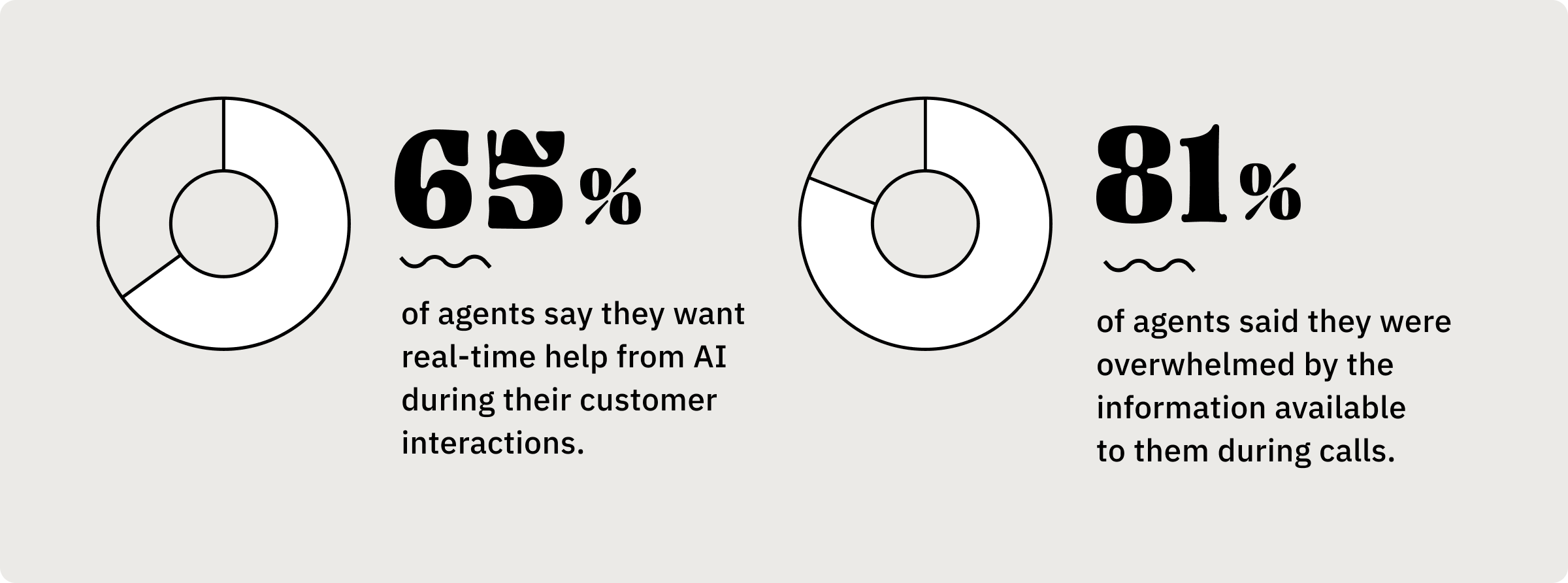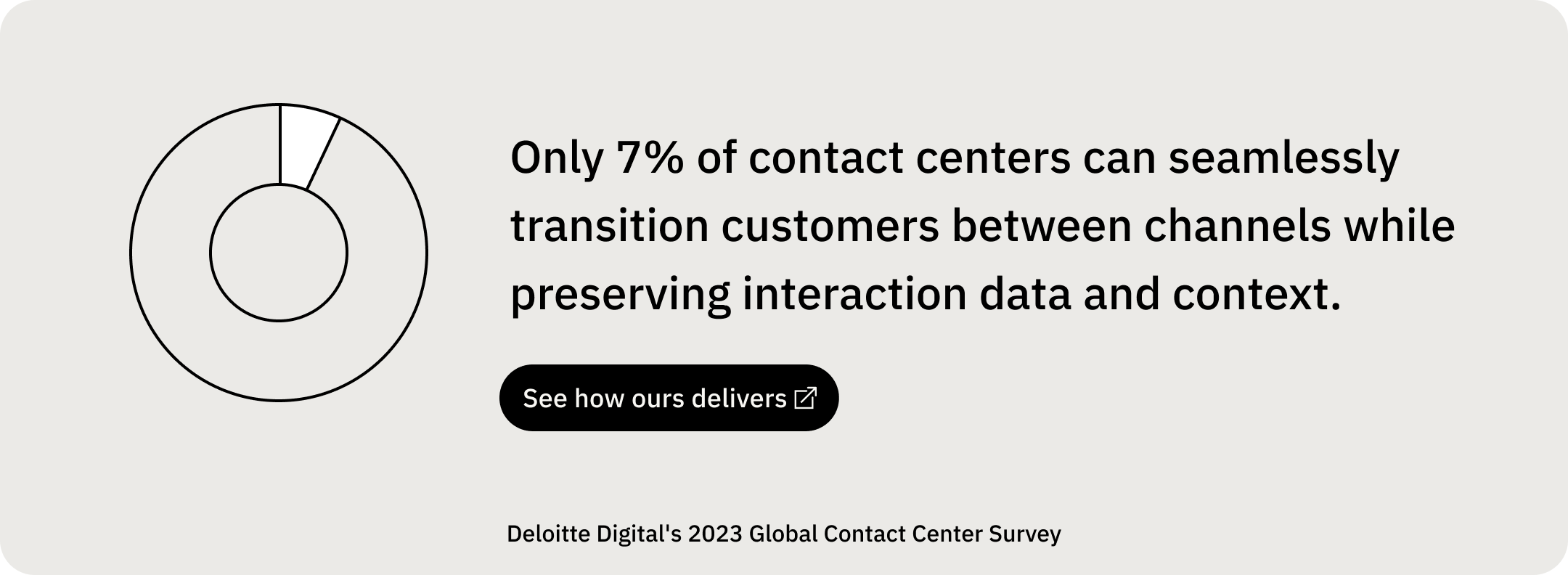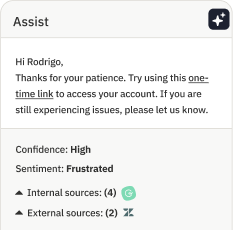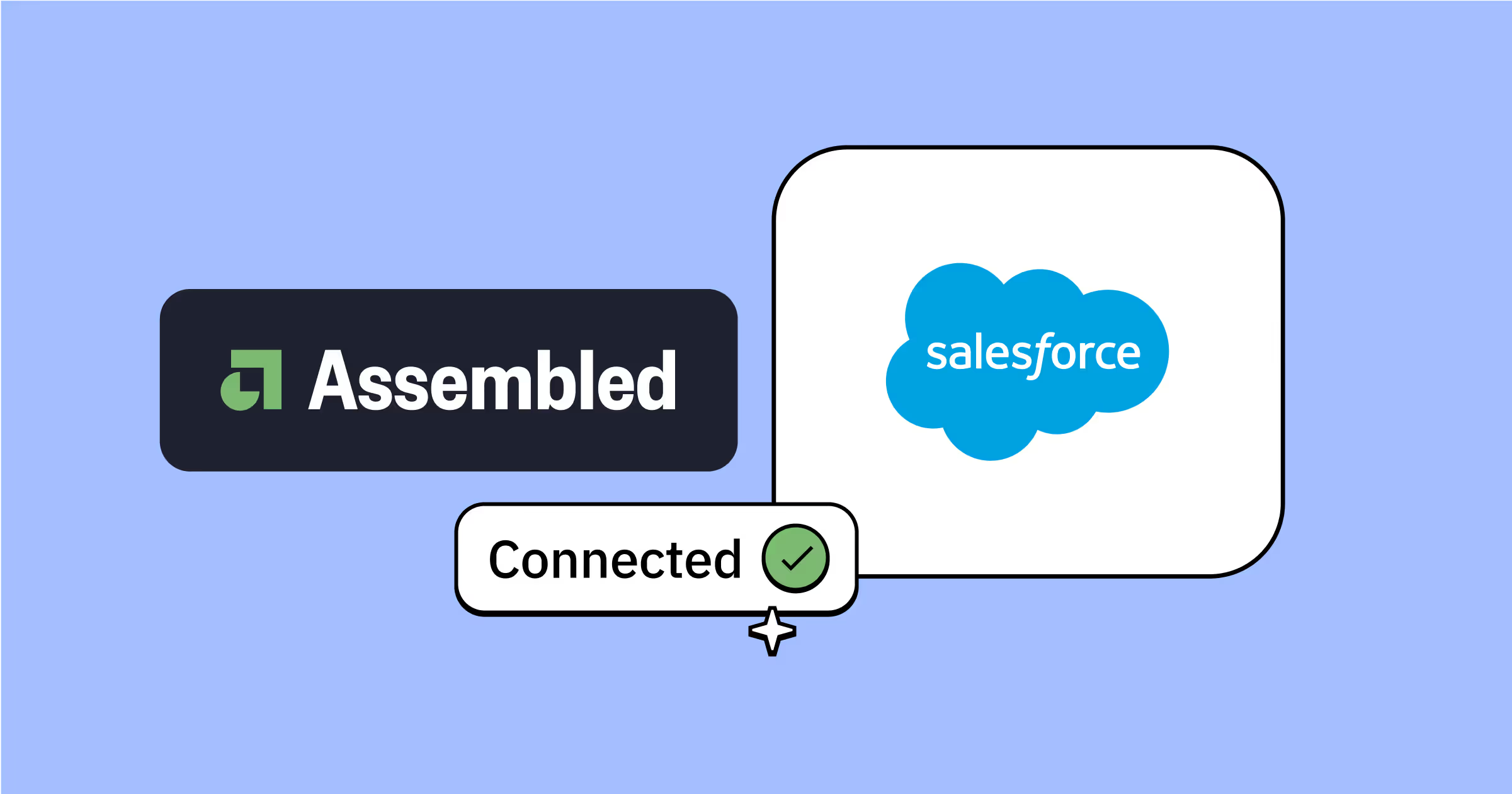AI won’t replace call center agents (it’ll make them better)

AI call center agents are transforming customer support — but not in the way you might fear. While Gartner predicts that agentic AI will autonomously resolve 80% of common customer service issues without human intervention by 2029, the real story isn't about replacement. It's about partnership.
That stat alone is enough to spike the cortisol levels of both call center agents and customer service leaders — and it's easy to feel like all of those "The robots are coming to steal your job!" scare tactics might actually have some truth to them.
But here's what the data and real-world implementations actually show: AI call center agents work best when they augment human capabilities, not substitute for them. This raises a burning question: Will AI replace human agents in your contact center? And what can we realistically expect for the future of call centers and the people who work in them?
What are AI call center agents?
AI call center agents are intelligent software systems that use natural language processing, machine learning, and system integrations to handle customer interactions autonomously — from answering questions to executing actions like processing refunds or updating accounts.
Unlike traditional chatbots that follow rigid scripts, modern AI agents understand context, reason through complex scenarios, and integrate with your existing tools to resolve issues end-to-end. They work across channels (chat, voice, email) and can either resolve issues independently or hand off seamlessly to human agents with full context.
Think of them as three distinct types:
AI chatbots and voice agents: Handle full customer conversations from start to finish
AI copilots: Assist human agents in real-time with suggestions, knowledge retrieval, and next-best actions
AI workflow automation: Execute behind-the-scenes tasks like routing, data lookup, and system updates
The key difference from older automation is that these agents don't just collect information — they take action and solve problems.
Understanding the evolving role of AI in call centers
AI in call centers has evolved from frustrating chatbots to intelligent systems that augment every aspect of support operations. Contact centers were actually early adopters of generative AI, according to McKinsey — but the first generation of tools left a lot to be desired.
Call center AI got its start with stiff chatbots, clunky interactive voice response (IVR) systems, and rule-based automations focused on basic tasks. While cutting-edge at the time, that antiquated technology is more of a source of frustration than fascination today.
The difference now? Modern AI solutions have gained traction across all areas of call center operations:
AI-powered chatbots that automatically respond to routine inquiries and FAQs (and sound like a real human when doing so)
Interactive voice response (IVR) systems that use conversational AI and natural language processing (NLP) to understand the nuances of customer queries and automate call routing
AI-powered scheduling that analyzes historical data and real-time demand to help you make smarter staffing decisions
Predictive analytics to anticipate customer needs and proactively offer solutions or recommendations
Detailed customer data to build a deeper understanding and improve customer interactions
Agent assist tools that pre-draft responses, suggest relevant knowledge base articles, or provide helpful hints in real-time
Automated transcription and sentiment analysis to evaluate customer interactions
Workflow automation to trigger follow-up actions or even handle complex resolutions
Put simply, AI helps your contact center agents become more efficient and effective — with Forrester predicting daily agent workloads will drop by an hour on average as it automates narrow tasks — while also improving the customer experience. The focus is shifting from deflection to orchestration.
AI call center agent use cases and capabilities
AI call center agents excel at handling high-volume, repetitive tasks that drain your human agents' time — and they're getting better at complex scenarios too. Here's what modern AI agents can actually do:
Common resolution workflows:
Password resets and account recovery: Verify identity and reset credentials without human intervention
Order status and tracking: Look up shipment information and provide real-time updates
Refund and cancellation processing: Evaluate eligibility, process transactions, and update systems automatically
Account updates: Change addresses, payment methods, or subscription settings based on policy rules
FAQ and policy questions: Pull accurate answers from your knowledge base, customized to customer context
Advanced capabilities:
Multi-step troubleshooting: Walk customers through technical issues with branching logic based on responses
Appointment scheduling: Check availability, book time slots, and send confirmations across integrated systems
Payment processing: Handle billing inquiries, payment plans, and failed transaction resolution
Proactive outreach: Send automated notifications for shipping delays, payment issues, or account updates
24/7 availability benefits:
The real operational advantage? AI agents provide consistent, instant support outside business hours — when customers need help but you don't want to staff overnight shifts. That means shorter wait times, better coverage during volume spikes, and reduced burden on your human team.
Can AI truly replace call center agents?
No — AI call center agents are unlikely to fully replace human agents, despite their impressive capabilities. While modern AI systems can handle complex issues and dynamic interactions well beyond basic FAQs, they can't replicate the human touch that customers still value most. In fact, one Gartner survey found that 53% of customers would consider switching to a competitor if a company used AI for customer service.
The reason bots aren't coming for all the jobs is that your customers are real humans with a strong appetite for human interaction.
An alarming 64% of customers say they’d prefer that companies didn’t use AI for customer service.
52% of customers feel frustrated when a company only has automated communications with no option for human interaction.
88% of customers say they prefer speaking to live, human agents instead of navigating a phone menu.
Even with all the improvements, AI agents can't quite mimic the emotional intelligence and personal touch of a human agent. And in contact centers, customer satisfaction and the customer experience reign supreme. When customers still want or need human support, the humans won't disappear.
Looking to the future: Blending the empathy of human agents with the efficiency of AI
That’s not to say AI doesn’t have a place in the modern contact center. It’s an undeniably valuable tool for managing high call volumes, reducing wait times, providing more self-service options — with Forrester predicting a 10% increase in successful simple self-service interactions for 1 in 4 brands by 2026 — and equipping agents with the data and resources they need to be as helpful and effective as possible.
To boil it down, AI in call centers is about supporting human agents — not substituting for them.
AI tools and human agents are often pitted against each other in an “either/or” sort of battle. But, in reality, the two should work together. Here are a few examples that show how.
1. Empowering agents with information
Real-time AI copilots act as a second brain for your agents, surfacing the right information exactly when they need it. Rather than digging through endless tabs or knowledge base articles mid-call, agents get suggested answers, relevant help docs, or even pre-drafted responses — all in the moment.
The demand is real: an impressive 65% of agents say they want real-time help from AI during their customer interactions. Among companies that don’t use generative AI, 81% of agents said they were overwhelmed by the information available to them during calls.
This is a great example of AI making your agents’ lives easier — without fueling fears that they’ll be replaced.
 2. Improving and personalizing customer interactions
2. Improving and personalizing customer interactions
While customers might still crave the human touch, they understand that AI will likely play a role in their interactions. In one survey, almost half of the customers who would prefer to speak to a live person said they’re comfortable if the agent used AI to improve the interaction.
From using sentiment analysis to guide tone to pulling in past interactions or purchase history, AI gives agents a deeper understanding of each customer they’re helping.
In short, an ideal support experience doesn’t rely on just humans or machines — it’s both, working in sync.
3. Making smarter scheduling and staffing decisions
AI can also work in the background of your contact center operations to help you make more data-informed decisions.
By analyzing historical trends, peak hours, and agent performance, AI can predict your call volumes and help you staff accordingly. That means less guesswork, fewer overworked agents, and better coverage (even during your busiest times).
Four key features to prioritize in AI solutions
AI isn’t going anywhere — it’s only going to dig its roots even deeper into contact centers, with some 80% of organizations anticipating an increase in AI and gen AI investments. Teams that refuse to adapt risk being left behind.
That means you’ll need to jump on the AI bandwagon eventually (if you haven’t already). So, when you’re ready, here are four important features to keep an eye out for when choosing AI for customer support:
1. Omnichannel automation
Recent research shows that a smooth omnichannel experience is non-negotiable for customers. 86% of consumers say they expect conversations with agents to move seamlessly between channels, whether they reach out via email, chat, phone, or social media.
Look for AI tools that preserve context and customer history across every touchpoint, unify conversation data into a single view, and allow agents to pick up right where the last interaction left off.
That alone will be a competitive differentiator. In Deloitte Digital’s 2023 Global Contact Center Survey, only 7% of contact centers said they had ways to seamlessly transition their customers between channels while preserving interaction data and context.
 2. Real-time transcription and analysis
2. Real-time transcription and analysis
You’ll want to look for AI tools that can transcribe calls and chats as they happen. That helps with efficiency and visibility across your support team. But beyond that, search for tools that use advanced algorithms and machine learning to analyze conversations for tone, sentiment, keywords, interruptions, and even emotional cues. This is valuable information you can use to improve your quality assurance processes and your agent coaching.
3. AI copilots for agent assistance
If you want to mitigate AI-related fears, show your agents how AI can be a resource — and not a replacement. Agent copilots are a great place to start. These tools suggest relevant responses, pull up knowledge base articles, and recommend the next best actions as the conversation unfolds. Copilots can increase your agents’ focus, confidence, and efficiency so they can deliver a top-notch support experience.
4. Data-driven performance tracking
Traditional metrics like call volume and average handle time are important, but they only tell part of the story. With AI-powered analytics, leaders can dig deeper by tracking sentiment trends, identifying frequently used phrases, spotting escalation patterns, and even detecting emotional cues in customer interactions.
That richer and more nuanced data helps you pinpoint exactly where your agents are knocking things out of the park — as well as where they might need a little extra help or coaching.
How to effectively integrate AI into your contact center
Successful AI implementation requires strategic planning, team buy-in, and continuous optimization. Finding the right tool with the right features is just the first step. Here's how to make your rollout successful (and less stressful):
Start with workflow mapping
Before diving into any AI tools, map out your existing processes. Identify high-volume, repetitive tasks and friction points — like password resets, order status inquiries, or slow ticket routing. These are prime candidates for automation and offer the biggest initial return on investment (ROI).
Upskill your team
AI works best when your people know how to work with it. Provide training that helps agents understand how to use AI tools to their advantage — whether that's drafting faster responses or pulling up relevant information. When agents see AI as a helpful partner rather than a threat, you build a more confident, collaborative team.
Monitor and iterate
AI and automation are meant to help you be more hands-off, but don't completely check out. Track metrics like first call resolution (FCR), average handle time, customer sentiment, and SLA adherence to see how AI is performing. Use those insights to fine-tune your implementation and identify other potential use cases.
Balance automation and the human touch
Just because you can doesn't mean you should. Not every customer interaction should be automated. Use AI strategically, but make sure your human agents are front and center when empathy, nuance, or complex problem-solving are needed. Striking the right balance is key to delivering personalized, helpful, and memorable service, which is why Forrester predicts 30% of enterprises will create parallel AI functions that mirror, rather than replace, human service roles.
Humans and AI: More harmony (and fewer hassles) with Assembled
Gone are the days when integrating AI into your contact center was a future-facing strategy. Now it’s a present-day necessity. But the key to doing it right lies in striking a balance: combining the speed and efficiency of AI with the empathy and expertise of human agents.
Assembled AI can help you walk that tightrope. From real-time agent support and smart staffing recommendations to powerful agentic workflows, it’s designed to reduce costs, strengthen collaboration, and elevate the customer experience — all without losing that oh-so-important human touch.
When you boil it down, AI isn’t eradicating support agents, but it is evolving their role. The true magic happens when you and your support team recognize that AI isn’t going to give you the boot — it’s going to make you better.
Ready to see how AI agents can resolve 70% of your support volume while improving CSAT? Book a demo to see how Assembled's AI agents for chat, voice, and email handle real customer scenarios — with seamless handoffs to your human team when it matters most.
Frequently asked questions about AI call center agents
Can AI agents completely replace human call center agents?
No, AI agents are unlikely to fully replace human agents because customers still strongly prefer human interaction for complex, emotional, or nuanced issues — with 64% saying they'd prefer companies didn't use AI for customer service at all.
What types of customer issues can AI agents not handle effectively?
AI agents struggle with gray-area situations requiring judgment calls, highly emotional conversations needing empathy, complex multi-system troubleshooting, and unique edge cases outside their training data.
How much do AI call center agents cost compared to human agents?
AI call center agents typically cost 30–40% less per interaction than human agents over time, though implementation requires upfront investment in software, integrations, and training that varies by vendor and complexity.
How long does it take to implement AI agents in a call center?
Modern AI agents can go live in hours to weeks depending on complexity — resolution-first platforms like Assembled's can deploy in days, while building custom solutions or integrating legacy systems may take months.
Do AI agents integrate with existing call center software and systems?
Yes, modern AI agents integrate with most major platforms including Salesforce, Zendesk, Intercom, Shopify, and popular CCaaS providers through APIs, though integration complexity varies by your tech stack.




